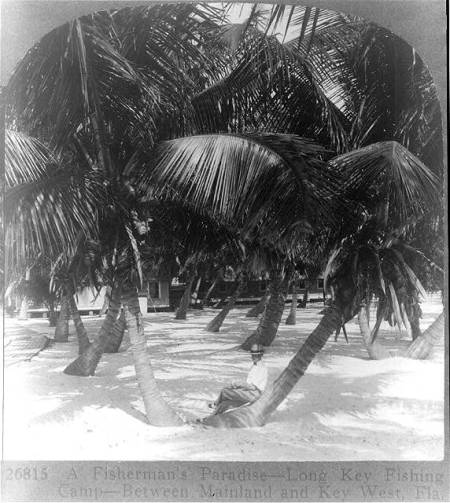Think of a raked sky-wide Venetian blind.
Add the receding traction of its slats
Of its slats of its slats as a hand draws it up.
Hear the Greek army getting to its feet.
Then of a stadium when many boards are raised
And many faces change to one vast face.
So, where there were so many masks,
Now one Greek mask glittered from strip to ridge.
–Christopher Logue, All Day Permanent Red
It is long past time for an especially daring Regissieur to mount a production of Wagner’s Ring in the style of Peter Jackson’s LOTR films. In that way, the influence of Wagner on Tolkien, as seen by Jackson, comes back to the source material.
Pope’s translation of Homer’s Iliad
Here are a few favorite passages. This is Juno’s seduction of Jupiter in Book XIV, which begins as the goddess beautifies herself as well as she can, even calling on Venus to give up her almighty girdle, which no male can resist:
Touch’d with her secret key, the doors unfold:
Self-clos’d behind her shut the valves of gold.
Here first she bathes; and round her body pours
Soft oils of fragrance, and ambrosial show’rs:
The winds perfum’d, the balmy gale convey
Thro’ heav’n, thro’ earth, and all the aërial way:
Spirit divine! whose exhalation greets
The sense of Gods with more than mortal sweets.
Thus while she breath’d of heav’n, with decent pride
Her artful hands the radiant tresses ty’d;
Part on her head in shining ringlets roll’d,
Part o’er her shoulders wav’d like melted gold.
Around her next a heav’nly mantle flow’d,
That rich with Pallas’ labour’d colours glow’d;
Large clasps of gold the foldings gather’d round,
A golden zone her swelling bosom bound.
Far-beaming pendants tremble in her ear,
Each gemm illumin’d with a triple star.
Then o’er her head she casts a veil more white
Then new fal’n snow, and dazling as the light.
Last her fair feet celestial sandals grace.
Thus issuing radiant, with majestic pace,
Forth from the dome th’ imperial Goddess moves,
And calls the Mother of the Smiles and Loves.
How long (to Venus thus apart she cry’d)
Shall human strifes celestial minds divide?
Ah yet, will Venus aid Saturnia‘s joy,
And set aside the cause of Greece
Let heav’n’s dread empress (Cytherea said)
Speak her request, and deem her will obey’d.
Then grant me (said the Queen) those conqu’ring charms,
That pow’r, which mortals and immortals warms,
That love, which melts mankind in fierce desires,
And burns the sons of heav’n with sacred fires!
(XIV 195-228)
A fair test of any translation of the Iliad is how the many fights come off–is it just one damn thing after another, or is there enough variety to keep the reader awake? Pope passes this test, as in this telling of one of Hector’s many kills:
As when a lion, rushing from his den,
Amidst the plain of some wide-water’d fen,
(Where num’rous oxen, as at ease they feed,
At large expatiate o’er the ranker mead;)
Leaps on the herds before the herdsman’s eyes;
The trembling herdsman far to distance flies:
Some lordly bull (the rest dispers’d and fled)
He singles out; arrests, and lays him dead.
Thus from the rage of Jove-like Hector flew
All Greece in heaps; but one he seiz’d, and slew.
(XV, 760-769)
In the next book:
In equal arms two sons of Nestor stand,
And two bold brothers of the Lycian band:
By great Antilochus, Atymnius dies,
Pierc’d in the flank, lamented youth! he lies.
Kind Maris, bleeding in his brother’s wound,
Defends his breathless carcase on the ground;
Furious he flies, his murd’rer to engage,
But godlike Thrasimed prevents his rage,
Between his arm and shoulder aims a blow;
His arm falls spouting on the dust below:
He sinks, with endless darkness cover’d o’er,
And vents his soul effus’d with gushing gore.
(XVI, 376-387)
Throughout, Jupiter ensures that the Greeks’ victory is never in doubt, but doesn’t come too soon. His messenger, Iris the rainbow (“the many-colour’d maid”), carries his commands to earth:
Now storms the victor at the Trojan wall;
Surveys the tow’rs, and meditates their fall.
But Jove descending shook th’ Idaean hills,
And down their summits pour’d a hundred rills:
Th’ unkindled light’ning in his hand he took,
And thus the many-colour’d maid bespoke.
Iris, with haste thy golden wings display,
To god-like Hector this our word convey.
While Agamemnon wastes the ranks around,
Fights in the front, and bathes with blood the ground,
Bid him give way; but issue forth commands,
And trust the war to less important hands:
But when, or wounded by the spear, or dart,
That chief shall mount his chariot, and depart:
Then Jove shall string his arm, and fire his breast,
Then to her ships shall flying Greece be press’d,
Till to the main the burning sun descend,
And sacred night her awful shade extend.
(XI, 235-252)
Notice Pope’s use of English and very Miltonic sounds in the passage above, as shown below in bold:
Now storms the victor at the Trojan wall;
Surveys the tow’rs, and meditates their fall.
But Jove descending shook th’ Idaean hills,
And down their summits pour’d a hundred rills:
Th’ unkindled light’ning in his hand he took,
And thus the many-colour’d maid bespoke.
Iris, with haste thy golden wings display,
To god-like Hector this our word convey.
While Agamemnon wastes the ranks around,
Fights in the front, and bathes with blood the ground,
Bid him give way; but issue forth commands,
And trust the war to less important hands:
But when, or wounded by the spear, or dart,
That chief shall mount his chariot, and depart:
Then Jove shall string his arm, and fire his breast,
Then to her ships shall flying Greece be press’d,
Till to the main the burning sun descend,
And sacred night her awful shade extend.
(Something should be said here about the rhymed couplet, so very Eighteenth Century. Pope is magisterial indeed. Once the ear hears what’s going on, the form does not intrude. The rhymes almost always work out. There is at least one instance of world/hurled, which elsewhere might be painful, but is hard to blame in this book, given the topic. That important English word world is notoriously hard to rhyme.)
While Achilles is on his way to Troy to find Hector and destroy him, the river Scamander itself appeals to him:
O first of mortals! (for the Gods are thine)
In valour matchless, and in force divine!
If Jove have giv’n thee every Trojan head,
‘Tis not on me thy rage should heap the dead.
See! my choak’d streams no more their course can keep,
Nor roll their wonted tribute to the deep.
Turn then, impetuous! from our injur’d flood;
Content, thy slaughters could amaze a God.
In human form confess’d before his eyes
The river thus; and thus the Chief replies.
O sacred stream! thy word we shall obey;
But not till Troy the destin’d vengeance pay,
Not till within her tow’rs the perjur’d train
Shall pant, and tremble at our arms again;
Not till proud Hector, guardian of her wall,
Or stain this lance, or see Achilles fall.
(XXI, 231-246)
Perhaps it is the structure of this edition, with Pope’s one-paragraph summary (“Argument”) at the head of each Book, and then lengthy notes (“Observations”) following, but the massiveness of the story is unavoidable. This Iliad is a kind of library of storytelling.

Quaker Guns at Manassas


You must be logged in to post a comment.